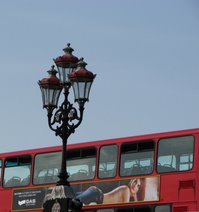The BBC and other news channels are now reporting that the man who died during last week's protests during the G20 summit had "contact" with the police before he died close to the Bank of England.
http://news.bbc.co.uk/1/hi/uk/7986192.stm
This had previously been denied. It was claimed that he had just got caught up in the protest and then died of an unrelated heart attack.
Whatever is ultimately proved (or for that matter denied) the death of Ian Tomlinson highlights the recent police practice during large scale demonstrations of "kettling". "Kettling" is the term applied to the practice of blocking all protestors into an enclosed area so that they become exhausted. During their time in the "kettle" they have no opportunity to eat, drink, go to the lavatory or anything else that anyone would normally expect to be free to do.
Kettling can go on for many hours and last Wednesday protestors were kettled for at least 8 or 9 hours.
The aim of kettling is superficially understandable. It is used when the Police expect crowd disorder and is seen as more desirable than having potentially violent protestors running free in a city or built up area.
The trouble with kettling is it is being increasingly used for all large scale demonstrations and many people just wanting to make their voice heard get trapped for hours on end.
While I have little common cause with many of the protestors who turned out last week, they were in most cases relatively harmless. From what I saw they were generally either students or hippies. The anarchist "black bloc" who threatened violence were tiny in number.
Ironically the only serious piece of violence, the attack on the Royal Bank of Scotland branch, happened inside the kettle when Police couldn't reach those breaking windows at the Bank due to the fact there were so many trapped peaceful protestors between them and the handful of window breakers.
The Police increasingly seem to see large scale protests as a nuisance to be contained and thwarted wherever possible. There seems little appreciation that the right to protest, to speak out on an issue you feel strongly about is a democratic right.
In fact many of the wider population, also seem to look with a mixture of bemusement and contempt at protestors. They are written off as "work shy" or "troublemakers". This vast over-generalisation misses the point that most real political change (whether for better or worse) has come about only after campaigns that have involved a degree of public protest.
For protest to be increasingly limited on grounds of "public order" is a dangerous step on the road to a police state. The use of the "kettle" as a standard police response to any major public protest is a gross assault on liberty and the right to protest and speak out.
It can only be hoped that the death of an innocent man causes the Police to pause for thought the next time they kettle a large crowd into a confined space for hours on end, beating those who attempt to get out.
The widescale use of riot gear at last week's protests also highlights a hardening in the police approach. The protestors are seen as a threat to be controlled, beaten and frustrated wherever possible. While the minority bent on violence should be controlled and stopped, the great majority of peaceful protestors of whatever views should be respected when exercising their democratic right to protest.
Subscribe to:
Post Comments (Atom)


No comments:
Post a Comment